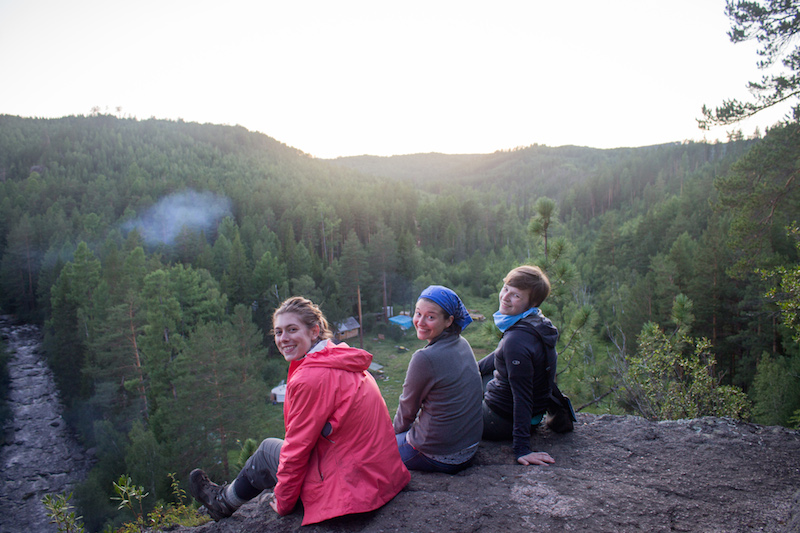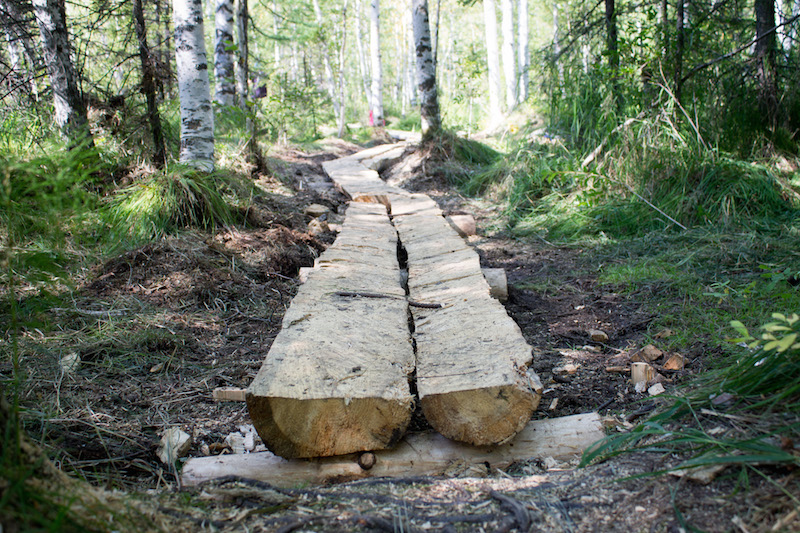Volunteering Abroad: How to Make Sure You’re Actually Helping

 Volunteering abroad can be a wonderful experience–you get to travel and do some good for the world at the same time. Win/win, right? Unfortunately, not always.
Volunteering abroad can be a wonderful experience–you get to travel and do some good for the world at the same time. Win/win, right? Unfortunately, not always.
I’ve learned this lesson through experience on three different continents; I have completed volunteer internships in Peru and Kenya and I just returned home from a project near Lake Baikal in Russia. All of these experiences taught me something, but some volunteer projects are more effective than others.
As an international volunteer, you may be doing less good than you think – or worse, even causing harm. International development is fraught with complexity that is still debated even among experts on some points. However, there are guidelines that you can follow when choosing a volunteer project in order to make sure that your efforts are well spent and that you’re giving as well as getting from the experience.
1. Consider the organization.
Who is in charge? Is it a local organization, or is it a large for-profit that isn’t based where the projects are? Regional expertise is key when it comes to development work—after all, who would better know what is helpful: locals or distant businesspeople?
As an international volunteer, you may be doing less good than you think – or worse, even causing harm.
Another aspect to investigate is the organization’s finances. Sadly, corruption isn’t uncommon. Make sure the organization is transparent. Need help with this? A quick online search of “charity evaluation” will bring up many websites that can guide you. Also consider any fees you may have to pay as a volunteer. Does the amount make sense? What does it cover? You want to ensure the organization is being fair to you as well.
I spent a summer working with an organization that I quickly discovered was corrupt. Not only was this awkward, but I didn’t feel like I could help the organization or that I could learn much from it, since not a lot was being done. I still benefited from my time in the region, but I would have been much happier in a better work environment.
Finally, read about the organization’s impacts. How do they showcase their completed projects? This should help you get an idea of what kind of work the organization is doing and if they are producing results.
2. Consider the project.
Why is it helpful? This question should be looked at critically, as there are many popular projects that, in reality, do less good than people would like to think. Three key questions that should be answered are: Is it important? Is it sustainable? Could it be done better by locals?
Let’s take a popular project as an example: building schools. Is it important? Maybe. Of course schools are important, but does this particular area need more school buildings? Is it sustainable? Once the building is built, what happens? Will it have school materials and staff and be maintained? An empty building does not magically become a school, which is when the positive impacts begin. Could it be done better by locals? Let’s face it: not many young volunteers have construction experience, especially not with materials commonly used in other countries. Additionally, influxes of volunteers may be displacing workers who actually need the income and could do the work just as well themselves. It all depends on the situation and what volunteers are being used for. There are of course projects that utilize volunteers effectively and to great ends.
Volunteering shouldn’t be about looking impressive. It’s about learning and helping.
While volunteering with a microfinance organization, I helped with calculations and organizing financial records, freeing staff to do other work. I also used my background in environmental policy to create talks for communal banks about environmental issues. It was nothing groundbreaking, but I think I was at least entertaining! The lesson here is that I used skills sets I had to help out, but by no means was I saving the world.
As a volunteer, it is important to be humble and defer to people who truly know better. It is also important to understand that even though you’re not doing anything earth shattering, it is better to do small but helpful tasks than flashy projects that ultimately aren’t of much use. In my travels, I have seen the shells of well-meaning, high-profile projects that are now abandoned. Volunteering shouldn’t be about looking impressive. It’s about learning and helping.
3. Consider yourself.
What is your motivation for volunteering? Evaluate your aims honestly. Do you want to have a killer Facebook album? You may want to consider simply traveling if instead. Do you want to save the world? Good luck! – but make sure you’re realistic about your expectations. Do you want to gain professional experience? Ask the organization if they can put you in touch with former volunteers so you can get a better idea of the work.
What is your comfort level? Some volunteer projects may require living in conditions very different than what you’re used to. Or, you may be in a position where you don’t understand 100% of the time due to language barriers. If these things may frustrate you, consider other options. After all, not only do you want to enjoy your experience, but a grumpy volunteer isn’t much help.
The more passion you have about the project, the more likely it is you’ll get good results.

What are your skills? What do you enjoy? You want to have something to contribute. And, the more passion you have about the project, the more likely it is you’ll get good results. If you’re still in school or a recent graduate without a lot of experience yet, or if you don’t think you have any particular skills sets, that’s fine. Even being good at using the internet can be useful. Maybe an organization needs to build its social media presence! If your skill is running marathons or being a master yogi, maybe a project like trail building that requires a certain level of fitness is something to consider. There are many options!
The project I recently returned from was trail building near Lake Baikal in Siberia. We camped out for two weeks and constructed a wooden path over a bog to a popular rock climbing and hiking site. It doesn’t sound glamorous, but we were creating an ecotourism infrastructure in a remarkable area that will actually be useful. People were walking on our trail even before it was completed and thanking us! It was one of the best experiences I’ve had, thanks to the wonderful people and the amazing location.
But remember, every volunteering project is not for everyone, and not every volunteering project is good by default. Volunteering can be an amazing experience, but before deciding on a project, think critically about its impacts and about your abilities. That way, your efforts will be worthwhile and you’ll have a great time, learning a lot along the way.









This is a really important topic! I have also had mixed experiences as an international volunteer, and some articles I’ve read on it are really one-sided either for or against it. I think yours is well done.